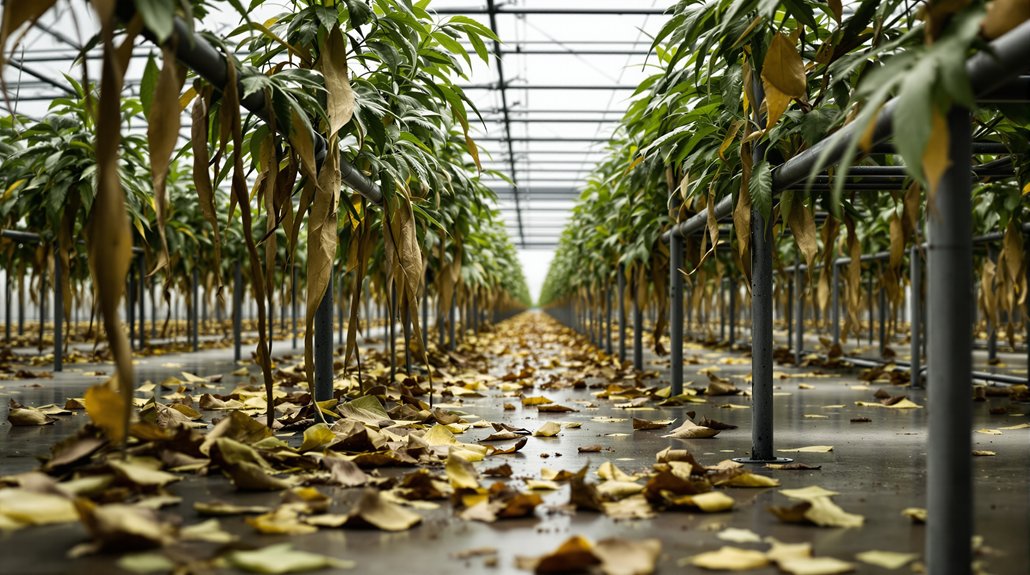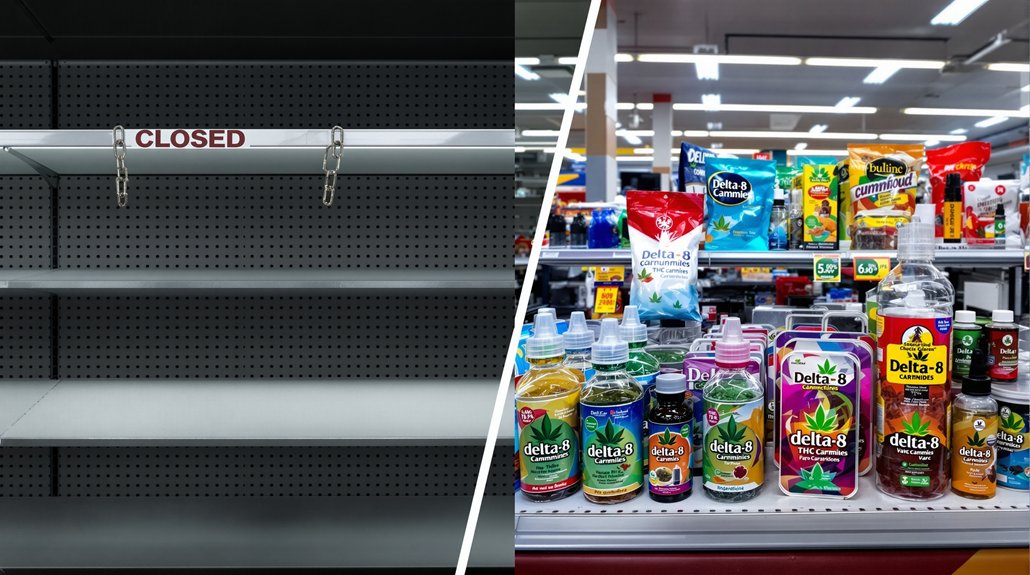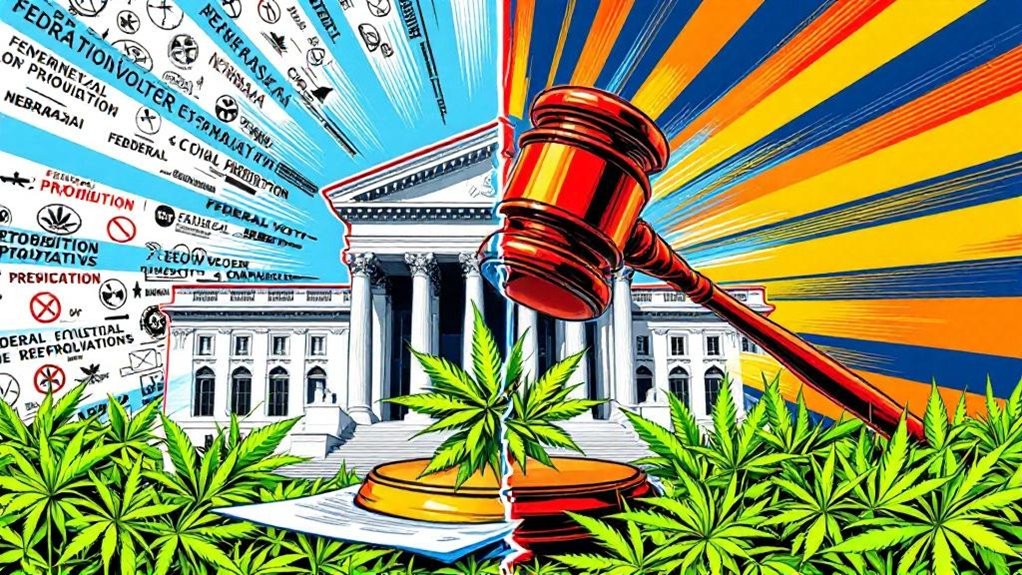Alabama’s cannabis industry faces an unprecedented crisis as regulatory dysfunction threatens to wipe out entire harvests before they reach market. Cultivators watch helplessly as licensing delays stretch into months while their crops mature toward destruction deadlines. The state’s tightened THC limits and smokable cannabis ban have left growers scrambling to comply with shifting rules. Legal appeals clog the approval process further. These farmers invested heavily in what they believed would be a legitimate business opportunity, only to discover the ground rules keep changing beneath their feet.
While Alabama legalized medical marijuana in 2021, cannabis growers across the state now find themselves trapped in a regulatory nightmare that has left crops vulnerable to destruction and businesses in legal limbo. The Alabama Medical Cannabis Commission’s licensing process has devolved into a legal free-for-all, with repeated delays, litigation, and uncertainty forcing some operators to contemplate destroying their harvests rather than face potential criminal charges.
The licensing chaos has created a perfect storm of regulatory confusion. Only five integrated facilities and four dispensaries will receive licenses statewide, leaving dozens of hopeful applicants in limbo. Multiple rounds of evaluations, denials, and legal appeals have stretched the timeline far beyond original projections. As of mid-2025, not a single legal sale has occurred despite the program’s launch nearly four years ago.
Four years after legalization, Alabama’s medical marijuana program remains a paper promise with zero legal sales completed.
For growers caught in this bureaucratic maze, the stakes couldn’t be higher. Cultivation of 2.2 to 100 pounds without proper authorization carries penalties of 10 to 99 years imprisonment and fines up to $25,000. State laws permit asset seizure and crop destruction for violations related to drug trafficking, a classification that can include non-compliant cannabis operations. Some growers report receiving threats of crop destruction while their licensing applications remain unresolved.
The situation worsened with the passage of HB445, which tightened restrictions on THC-containing products and eliminated smokable cannabis options entirely. Enforcement actions intensified around the law’s implementation, leaving operators uncertain whether their current operations comply with evolving regulations. The ambiguity between state and federal hemp laws has only deepened the confusion.
Meanwhile, law enforcement continues aggressive prosecution of cannabis-related offenses. Over 7,660 people faced arrest for cannabis possession in Alabama during 2022 alone. First-time possession without a prescription carries penalties up to one year in jail and $6,000 in fines, while repeat offenses trigger mandatory minimums. The state’s draconian penalties remain a significant obstacle for those seeking reform. Sale to minors can result in life imprisonment and $60,000 fines.
The regulatory dysfunction has left medical patients without legal access to cannabis products four years after legalization. Those who might benefit from medical marijuana remain caught between an inaccessible legal market and criminalized alternatives. The limited product selection, restricted to non-inhalable formats, further constrains patient options once dispensaries eventually open. Under current regulations, patients face a daily limit of 50 milligrams of cannabis, with terminal illness patients allowed up to 75 milligrams.
Industry participants face an impossible choice between maintaining cultivation operations that risk criminal prosecution or abandoning investments entirely. Many growers have invested significant resources in facilities and crops, only to discover their applications denied or indefinitely delayed. The threat of crop destruction looms over operations that exist in regulatory gray areas. Unlike in cash-only operations seen in other markets, Alabama’s regulatory framework compounds financial challenges by failing to address banking restrictions for cannabis businesses.
The chaos extends beyond individual businesses to the broader cannabis supply chain. Vendors must now register with the Alabama Beverage Control Board and pay excise taxes for THC consumables, adding another layer of compliance complexity. Until the licensing process stabilizes and dispensaries begin operations, Alabama’s medical marijuana program remains a regulatory concept rather than a functioning reality for patients and businesses alike.










